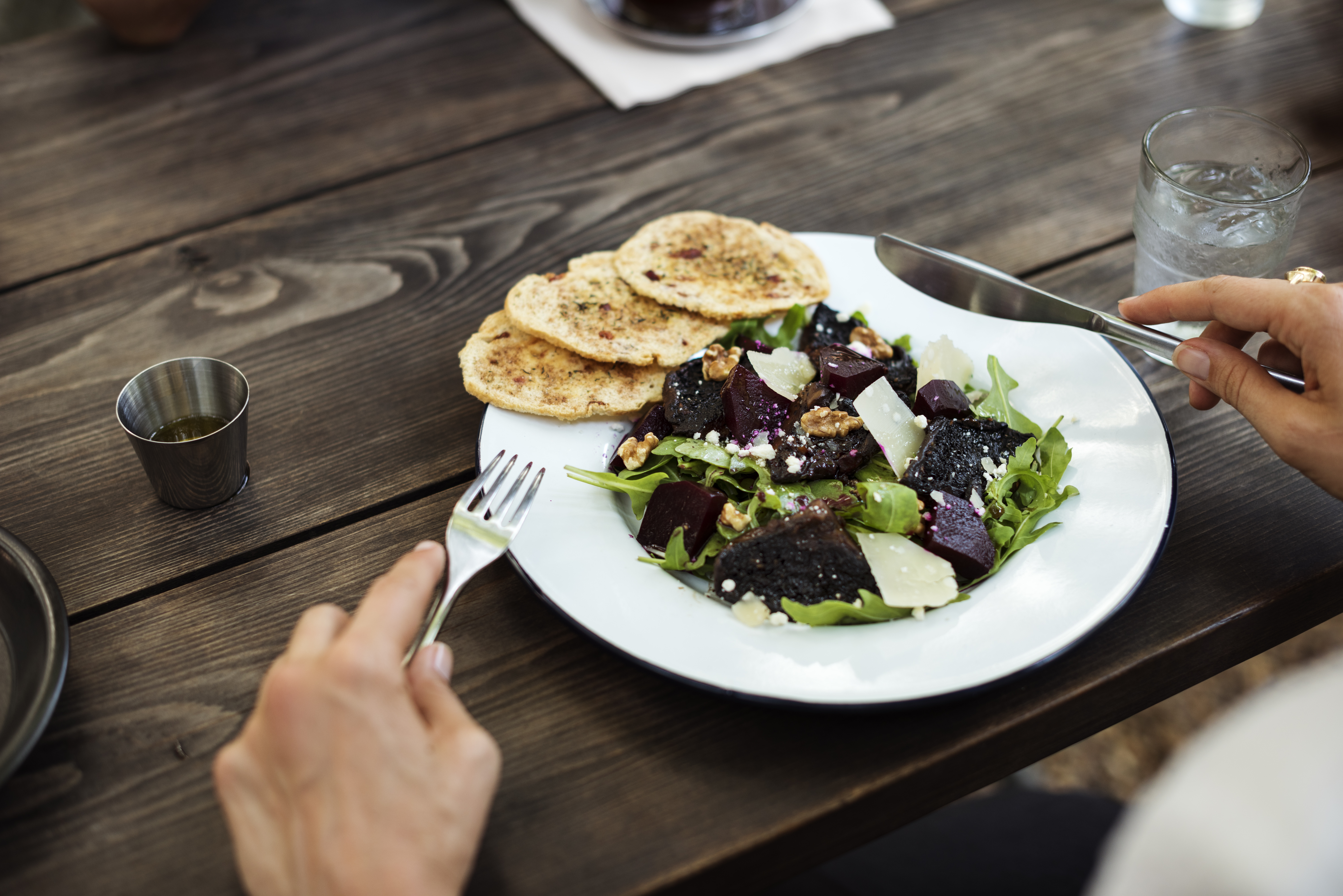Having recently learned that pigs have the ability to learn to play video games faster than your average three year-old (I swear, fact check me), I revisited my yearning to cut meat out of my diet despite my horrific lack of willpower. When talking to a friend about just this, she mentioned she would only cut meat out of her diet as a means of losing weight.
This had me wondering, would simply just cutting meat out of my diet facilitate weight loss? Seems too easy – and it is. But, only to an extent.
While cutting meat out of your diet can aid in weight-loss, it takes a fair amount of nutritional education to be sure that you are getting enough protein, not too many carbohydrates, and maintaining a balanced diet while trying to lose weight as a vegan or vegetarian.
I had a chat with Hanna Thomsen, long-time vegan, now vegetarian (who sometimes eats fish), and dietetic professional on tips for staying committed to being vegan/vegetarian while losing weight.
Hanna said: “Initially when switching to a vegetarian/vegan diet a person will most likely lose weight just because of the fact that they eliminated something from their diet and now are in a calorie deficit. To achieve weight loss you must have some sort of calorie deficit. If a person is eating a well-balanced vegetarian/vegan diet they can achieve that. Well-balanced means that they have an appropriate amount of carbohydrates, proteins, and fats. Vegan/vegetarian protein sources include beans (soy, garbonzo, black, kidney, pinto, etc.), tempeh, tofu, seitan, peanut butter, protein powders (made from soy, rice, peas), and meat alternatives. The list of meat alternatives is growing immensely every year.”
Great sources of protein that are lower in carbohydrates include: Greek yogurt, cottage cheese, seitan, tofu, protein powders, and some non-breaded meat alternatives.
“The concern is that almost all vegan proteins contain carbohydrates as well and the proteins are less bioavailable (meaning not as easily absorbed). Carbohydrates are not the enemy either if they are complex carbohydrates. Whole grains contain vitamins, minerals, and fiber that are all necessary for our health. The issue comes into play when the diet is no longer has that balance between fat, protein, and carbohydrates. If a person wants to follow a vegetarian/vegan diet that is good for their health and aids in weight loss they must make sure to pay attention to that balance.”
For someone without a BA in dietetics, it seems like it takes some research and a bit of dedication to eat such a restrictive diet while making sure to get all of the proper nutrients, AND tracking calorie intake. Losing weight is hard enough as it is. Vegan/vegetarians are also already at a higher risk for nutrient deficiencies. Hanna told me a few of the deficiencies to be aware of:
“Nutrients of concern for vegans/vegetarians are: B12 (can get through fortification & kombucha), iron (plants do contain some iron but it is not well absorbed), omega-3 fatty acids (specifically at risk for EPA & DHA types), vitamin D (you’re not getting enough from the sun), zinc (can get from beans) , and calcium (can get from non-dairy milk if fortified). Be sure to talk to your physician before starting any supplement! It is imperative for your health to talk with your doctor when considering supplementation especially with minerals. If you over supplement with iron it can be toxic.”
Losing weight and staying committed to veganism/vegetarianism? Super doable. Just not super easy. So, if you are thinking about switching to a plant-based diet just for weight-loss benefits – don’t.
I would argue if I paid half as much attention to how “balanced” my omnivorous diet is, I would be unpleasantly surprised anyway.
Just asking for a friend, how many grams of protein are in a pint?
If you’re blessed with a naturally fast acting metabolism and none of this applies to you, check out some vegan treats to indulge in around London or just pick up at our local grocery store.
Written: Tristan Prawl | Sub Edited: Giulia Trinci



